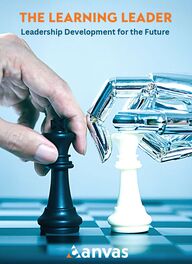
Return to flip book view
THE LEARNING LEADERLeadership Development for the Future
Today's Leadership Realities Living in complexityLeadership is and has always been a tough job. And it’s gettingtougher. As companies struggle with retention, higher employeeexpectations, hybrid and remote workplaces, heavier workloads andconflicting priorities, leaders emerge as the cornerstone upon which an organization's capability to thrive and prosper during times ofadversity and transformation depends. Yet...In the face of today‘s challenges, traditionalmethods for supporting and developing leadersaren’t holding up.In fact, DDI’s Global Leadership Forecast research, which hasexamined leadership trends and challenges for two decades, hasuncovered an alarming trend: In the most recent forecast, just 23%of leaders rated their leadership development as high quality, asignificant drop from previous forecasts. In most industries, this low score is cause for great concern.
Leaders feel unprepared for the challenges of their roles.Organizations are prioritizing the need to develop a healthy pipeline of leaders.Leaders at all levels feel increasingly overwhelmed, confused, and stressed about their roles.Leaders don’t have enough time to dedicate to continuous development and HR is struggling to find time, budget and resources needed to make it happen. Here’s what we know about the current state of leadershipdevelopment in 2024:Today’s complex global environment calls for leaders to be agiledecision makers, engage in critical self-reflection, integrate reflectionwith action, and partner with those who are different in significantways.
From surviving to thrivingToday’s complexity demands a kind of leadership that canconfidently navigate the tension of multifaceted challenges withoutclear direction. Leading through discontinuous change requiresresilience, and a mindset shift from reactive problem solving toproactive opportunity seeking - in the midst of volatility. This shift in perspective is paramount because it challenges leadersto understand resilience as a launching point for transformativechange, and not as the end goal. Prolonged reliance on resilience -to endure the impact of lockdowns, remote work transitions orsupply chain disruptions leads to burnout, exhaustion, reducedproductivity and detachment, impacting persformance and overallwellbeing. In a thriving culture, leaders recognizethat success is not a fixed desination, but an ever-evolving journey shaped by the dynamic interplay of people andchanging circumstances.
In such a changing environment, the art of meaning-making unfolds,driven by the necessity to adapt, innovate and align with shiftingparadigms. These dynamic conditions provide the very motivationneeded for leaders to to rethink perspectives, challengeassumptions and explore new paths. When used as a framework forleadership development and organizational change, transformativelearning fosters self-aware, future focused, critical thinkers whoreadily engage in courageous action to lead change. A transformative approach toleadership developmentIf we think about leadership, not as a title, but asa profound responsibility, to nurture bothorganizational and individual needs for holisticsuccess, then leading a culture of thrivingbecomes a uniting focus for leadershipdevelopment initiatives. Thriving goes beyond survival to consider what is needed to reachone’s full potential. It encompasses elements of safety, feelingvalued and accepted; community and a sense of belonging;authenticity and trust in relationships with others, and the autonomyto make a differrence through meaningful contribution and purpose.
Thriving in the midst of a constantly evolving workforcedemands a profound understanding of how to skillfully navigatemultifaceted challenges and opportunities. Contemporaryleadership development practices must therefore be anchoredinto sophisticated and tailored methodologies that address thefollowing considerations: Fostering an environment that valuescontinuous learning and growth, embedded within the organization’s DNAEnsuring that leadership skills areimmediately applicable, to drive positive organizational outcomes.Leveraging cutting-edge tools andtechnologies to facilitate engaging and impactful learning experiences.Cultivating a mindset forcomplexity and change
Recognizing that leadership doesn’t operatein isolation; actively promoting thedevelopment of cohesive, high-performng teamsEncouraging collaboration and the exchangeof ideas and knowledge among leaders and their teams. Addressing the challenges of digital fatigue;finding strategies to maintain motivation and focus in a virtual learning environment. Recognizing that learning needs can arise atany moment and providing responsive, just-in-time learning solutions.Ensuring that leadership developmentopportunities are accesssible to all,promoting diversity and inclusion.
The Canvas transformation modelfor leadership developmentIt is our ability to craft MEANING that empowers us to navigatelife’s complexities and discover purpose and fulfillment. Just like askilled artist who steps back to see what’s on their canvas beforedetermining the next purposeful brushstroke, leaders today have aresponsibility to pause amid today’s chaos and complexity tocritically reflect on the disorienting dilemmas inherent in today’sorganizational life.
By taking this deliberate pause, leadership responsibility tounderstand and examine the ‘current reality’ is elevated, surfacing anopportunity to challenge status quo thinking and to determine whatchanges may be needed and why. A transformative leader, fueled by self-motivation, naturally becomesa catalyst for change in others. By embodying the commitment to dothings differently and sharing their stories of intentional personaldisruption, they demonstrate - through their own behavior - thepower of embracing change. The MOTIVATION phase focuses on building/ strengthening leaders’ability to expand and shift their previous perspectives, to imaginenew possibilities for a different future. Leaders collaborate to co-create a unified sense of purpose, establish goals and identify thesupport/ resources needed to take action, while nurturing empathyand curiosity for the experiences of others. In the realm of leadership development, momentum is often thoughtabout in terms of sustainment efforts at the tail end of talentdevelopment, rather than being integrated from the start to activateownership and collective commitment. This early ignition ofmomentum instills a powerful sense of agency, empowering leadersas integral drivers of positive change, and shifting the focus fromshort term gains to lasting impact. In the MOMENTUM phase, attention is focused on sustainingprogress through purposeful and deliberate practice. This involvesrefining personal transformation strategies and activating a plan forlearning through execution and feedback for continuous growth.
a transformative learning, leadership, and culture change community. We work at the intersection of human growth andorganizational needs, to create a world in which ALL people are thriving. CanvasLeadership.com203-216-0131 | Community@CanvasLeadership.com |Leadership Development | People Strategy | Culture TransformationConnect with Us